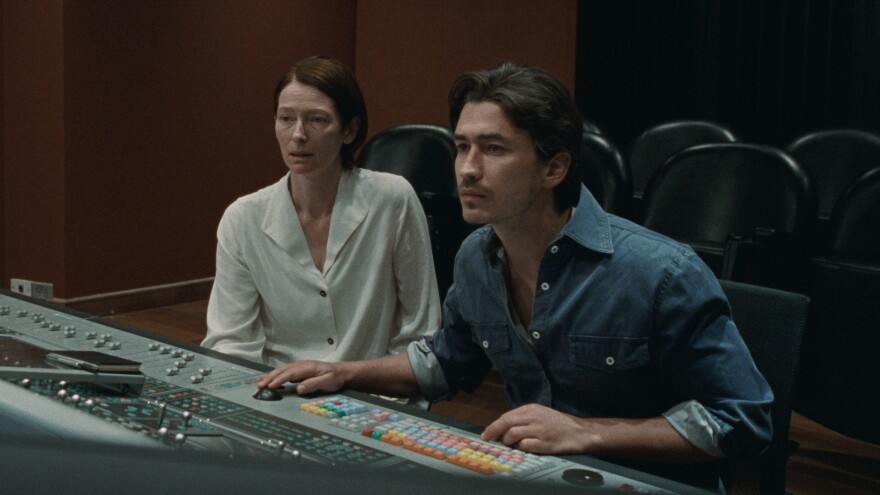
I'm a huge fan of the Thai writer-director Apichatpong Weerasethakul, which doesn't do much to dispel the widely held assumption that he makes movies only a critic could love. Weerasethakul's films, like Tropical Malady and Syndromes and a Century, certainly demand close attention: They're slow-paced and contemplative, steeped in Thai folklore and Buddhist belief, and they have little interest in conventional narrative. They're also thrilling and deeply moving; if you go into them with your eyes and ears wide open and take the time to adjust to their rhythms, it's hard not to fall under their spell.
Weerasethakul's new movie is called Memoria, and while it's as marvelously strange as anything he's ever made, it's also a bit of a departure. It's his first feature shot entirely outside Thailand, and it also marks his first time working with a movie star, in this case, the great Tilda Swinton. She's quietly mesmerizing as a Scottish-born botanist named Jessica, who lives in Medellín, Colombia. She's recently come to the city of Bogotá to visit her sister, who's recovering from a mysterious illness. The movie begins when Jessica is awakened in the middle of the night by a loud bang.
In the days to come, Jessica will hear that bang again and again, and soon she realizes that she's the only one who can hear it. Memoria is a sonic detective story, and it follows Jessica around town as she tries to figure out what the sound is, and why she's hearing it. She visits a young sound engineer named Hernán, played by Juan Pablo Urrego, who tries to help re-create the noise using pre-recorded sound effects. Speaking in a mix of Spanish and English, Jessica describes the sound as "a big ball of concrete that falls into a metal well."
Jessica's investigation leads her in a lot of strange directions. She visits an archeologist who's studying some recently excavated human remains that may have something to do with the sound she's hearing. She spends some more time with Hernán, but then he suddenly vanishes, leaving her — and us — to wonder if she's losing her grip on reality.
Eventually Jessica travels to a nearby mountain village and meets an older fisherman, curiously also named Hernán, played by Elkin Díaz. Could they be two different versions of the same person? It wouldn't be a surprise in Weerasethakul's world, which is full of parallel realities and reincarnated spirits.
Hernán says he's both blessed and cursed by his ability to remember everything that has ever happened to him, which provides a clue as to the significance of Memoria's title. It all builds to a climax that left my jaw on the floor, as we finally find out what's been causing that sound — though as always with Weerasethakul, the revelation yields more questions than answers.
But while Memoria has its share of baffling moments, Swinton's restrained presence anchors every scene. There's something especially emotional about the time Jessica spends with the older Hernán, in which we see two people who have never met forge an inexplicable yet profound connection. You can't take your eyes off Swinton, even when she's simply sitting still and quietly listening to someone speak. You're reminded, in these moments, that just listening to someone can be an act of radical empathy.
There were a lot of mixed reactions last year when the film distributor Neon announced that Memoria would only be shown on the big screen, as part of a never-ending road-tour-style release. As of now, there are no plans for the movie to be made available on DVD or streaming platforms. There's something refreshing about this approach, which treats Memoria not as just another chunk of disposable, streamable content, but as a work of art whose crystalline images and intricate sound design demand to be experienced under the best possible conditions. I hope you'll get to experience Memoria, as it's one of the most transporting movies you'll see — or hear — in a theater this year.







